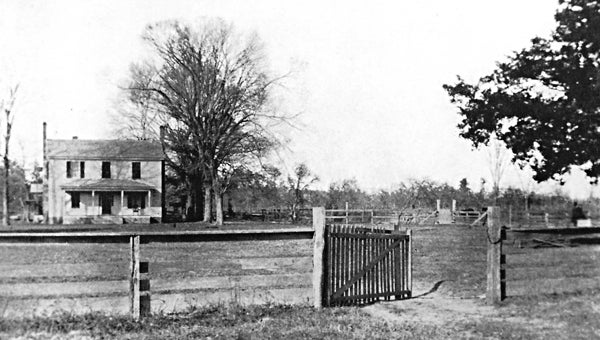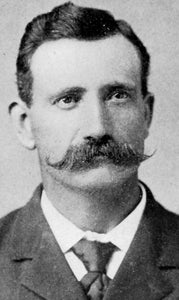The murder of Grac Jones: Chapter 3
Published 8:53 pm Tuesday, July 28, 2015

The home of Grac Jones faces south across the present South Quay Road. It still stands today. (Submitted Photo)
The dispute
EDITOR’S NOTE: On the evening of Oct. 26, 1908, five shots rang out in the village of Holland. Tiberius Gracchus “Grac” Jones lay dying on the ground inside the gate leading to his home. “They have killed me and killed me for telling the truth,” he told a friend as his life ebbed away. This is the third in a series of articles about the Jones murder case. Suffolk historian Kermit Hobbs Jr. compiled the 18-part series from personal accounts, newspaper stories and court records he has studied from the period.
By Kermit Hobbs Jr.
On Feb. 6, 1908, just three days after Gertie’s returning Zach Holland’s will, his opening of the will, and Sam Hardy’s reading it, Zach Holland died of pneumonia.
The loss of such a prominent member of the community would have been important news in the quiet town of Holland, but the level of interest was magnified by the rumors that were spreading about the size of Zach’s estate and the fact that the majority of it was bequeathed to young Gertie Vaughan Smith.
Later that day, Grac Jones and Sam Hardy met once again. “Grac,” Hardy said, “I think the old man must have destroyed that will, for no one has found it. If it is in existence and is found, it will put Gertie Vaughan way up.”
Jones accepted Hardy’s statement and repeated it to other people.
The following events were alleged by Grac Jones and denied by Sam Hardy. The veracity of this account was to become, literally, a matter of life and death.
According to Grac Jones:
The next day, February 7, Sam Hardy came to Grac Jones saying, “Grac, that will was not destroyed. I found it lying in old man Holland’s papers. I.A. Luke, Gus Holland and Joe Holland were there. They talked about what should be done with it. Luke said, ‘Burn it. Grac Jones says there is no will.’ Gus says, ‘Read it.’ Joe says, ‘Burn the d— thing up.’ And it was thrown into the fire.”
A day or two later, Hardy came to Grac Jones, very upset about the things that he had told Jones regarding the will. He tried to get Jones to promise not to let anyone know what Hardy had told him about the will’s being destroyed. Jones refused to make such a promise. Hardy asked Jones if he had told anyone about the destruction of the will. Jones answered that he had told a Dr. Barnes of Suffolk.
Sam Hardy replied that if and when the subject came up again, he would deny that he ever saw the will after Zach’s death. He told Jones that if word of its destruction ever got out, then he, Hardy, would be ruined.
For Jones to change his story about the will’s destruction would be the same as admitting to a lie, which in Jones’ eyes, it was not. Indeed, for Jones to suppress the important “knowledge” he possessed would be an affront to his personal integrity. As he saw it, his honor, his character, his very dignity, were being called into question.
He publicly declared that Sam Hardy had told him about Zach Holland’s will, including its reported destruction. With equal determination, Hardy denied every word of it.
The community now divided into factions concerning the will. Some people supported the family of Gertie Vaughan Smith, while others supported the family heirs who would stand to share Zach’s fortune if no will was found. Among those were descendants of William Holland, whom Zach had declared would “never receive a cent of his money.”
Concerning the stories and allegations regarding the destruction of the will that were flying back and forth, the people of Holland had to choose whether to believe the popular Sam Hardy or the stuffy Grac Jones.
TOMORROW: Chapter 4 — The lawsuit






